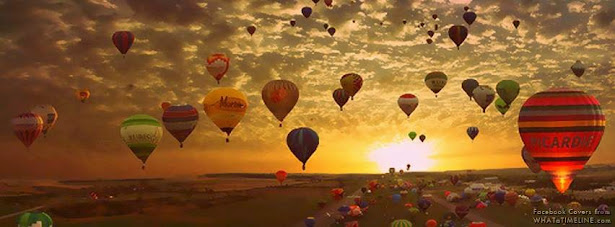Romanticism is a cultural and literary movement that took place in the first half of the nineteenth century, both in Europe and in America. This movement represents a total reaction; it was imposed by Neoclassicism reason, giving priority to feelings, emotions, fantasy and the ideal life. However, Realism emerged in Europe from 1850, when it was observed a progressive division between life and romantic mentality. It was generated a connection between reality and practicality of the bourgeoisie which conditioned the environment that will be seen with conformity or disagreement by the writers. Two important artistic movements were confronted and some of their literary features were exposed in a radical way, Romanticism and Realism in a drastic battle.
Firstly, the romantic mind is characterized by the desire for freedom, manifested in romantic man's struggle against absolutism rejecting the rules hitherto in force and desire to express freely. Secondly, it was observed an individualist romantic man who was showing a strong personality, for this reason he felt the center of the universe; Idealism is the engine of romantic man who seeks to fulfill unattainable desires which relate to the motherland, love or justice; and disappointment, caused by not being able to achieve those ideals into reality, causes evasion, and even suicide. Nonetheless, for realistic ideology, Liberalism prevailed as a political concept initiated by the Romantics, but it was possible to distinguish two aspects: moderate liberalism which was typical of the bourgeoisie; and progressive liberalism which was typical of most dynamic and restless sectors. Also, among the proletariat, which is emerging in parallel with industrialization, it was introduced revolutionary doctrines such as socialism, communism and anarchism.
In the field of literature, poetry is the genre that best suits romantic ideals. The first manifestations of romantic poetry are narrative, so collect legends, historical events and stories imagined by the author. The romantic drama is also very important because it pretended to touch the audiences with melodramatic stories about mystery. Besides, the protagonist appeared who is outside the law or does not accept the rules of society: the beggar, the pirate, the executioner, the Cossack, the defendant, etc. It began to use poetry with metrical forms, verse and prose, and there is a break in theater rules in the three units (time, place and action), the appreciation for the nightlife, scary, the emergence of a violent nature unleashed, related to the exalted romantic feeling.
Nevertheless, the novel was the literary genre cultivated by realist authors. It allowed them to speak accurately about complete parts of the life of their characters as well as recreate the spaces for which these were developing. In addition, it was developing a rigorous observation and reproduction of reality, a theme centered on daily life. It is often possible to read a critic with social or moral intention on the problems that reality presents. It began to see the objectivity as an ideal of the novelist, but sometimes it goes through judgments and personal observations. Moreover, it uses a sober prose, sometimes carefully, sometimes familiar. The dialogues are adapted to the characteristics of the character, and the use of indirect free style (a mixture of direct and indirect speech), this in order to reproduce the thoughts or feelings of the characters within the discourse of the narrator, so the reader is introduced into the heart of the characters.
As a conclusion, according to what was said by Carter (1954) cited by Campbell the basic axiom of the realistic view of morality was that there could be no moralizing in the novel. The morality of the realists was built upon what appears a paradox morality with an abhorrence of moralizing. Their ethical beliefs called, first of all, for a negative response of scheme of moral behavior imposed, from without, upon the characters of fiction and their actions. Nevertheless, Romanticism increased the achievements of what it perceived as heroic individualists and artists, whose pioneering examples would make higher society.
References:
CAMPBELL, D. (2013) "Realism in American Literature, 1860-1890." Literary Movements. Dept. of English, Washington State University. Retrieved May 25, 2013 from http://public.wsu.edu/~campbelld/amlit/realism.htm
Wikipedia Foundation, Inc (2013). Realism (arts). Retrieved May 26, 2013 from http://en.wikipedia.org/wiki/Realism_(arts)#cite_note-15
Wikipedia Foundation, Inc (2013). Romanticism. Retrieved May 26, 2013 from http://en.wikipedia.org/wiki/Romanticism
Every day is a new beginning, take a deep breath and start again.....

viernes, 5 de julio de 2013
Assignment #6
Publicado por
Camila Gutiérrez D.
en
7/05/2013 12:17:00 a. m.
Enviar por correo electrónico
Escribe un blog
Compartir en X
Compartir con Facebook


0 comentarios:
Publicar un comentario